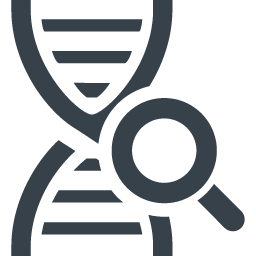 BIVM-ERCC5 gene related symptoms and diseases
BIVM-ERCC5 gene related symptoms and diseases
All the information presented here about the BIVM-ERCC5 gene and its related diseases, symptoms, and test panels has been aggregated from the following public sources: HGNC,NCBIGENE, Mendelian Rare Disease Search Engine.
Top 5 symptoms and clinical features associated to BIVM-ERCC5 gene
| Symptoms // Phenotype | % Cases |
|---|---|
| Intellectual disability | Very Common - Between 80% and 100% cases |
| Erythema | Very Common - Between 80% and 100% cases |
| Bilateral microphthalmos | Very Common - Between 80% and 100% cases |
| Infantile spasms | Very Common - Between 80% and 100% cases |
| Neoplasm of the skin | Very Common - Between 80% and 100% cases |
Other less frequent symptoms and clinical features
Patients with BIVM-ERCC5 gene alterations may also develop some of the following symptoms and phenotypes:Commonly - More than 50% cases
- Broad-based gait
- Cutaneous photosensitivity
- Intention tremor
- Congenital cataract
- Small for gestational age
- Mental deterioration
- Hearing impairment
- Pes cavus
And 9 more phenotypes, you can get all of them using our tools for rare diseases.
Rare diseases associated to BIVM-ERCC5 gene
Here you will find a list of rare diseases related to the BIVM-ERCC5. You can also use our tool to get a more accurate diagnosis based on your current symptoms.
XERODERMA PIGMENTOSUM, COMPLEMENTATION GROUP G; XPG
Alternate names
XERODERMA PIGMENTOSUM, COMPLEMENTATION GROUP G; XPG Is also known as xp, group g, xpgc, xeroderma pigmentosum vii, xp7
Description
For a general description of xeroderma pigmentosum, see XPA (OMIM ), and of Cockayne syndrome, see CSA (OMIM ). Complementation group G has one of the smallest series of cases (Arlett et al., 1980).
Most common symptoms of XERODERMA PIGMENTOSUM, COMPLEMENTATION GROUP G; XPG
- Intellectual disability
- Hearing impairment
- Microcephaly
- Ataxia
- Growth delay
More info about XERODERMA PIGMENTOSUM, COMPLEMENTATION GROUP G; XPG
Search interest in BIVM-ERCC5
If you liked this article maybe you will also find interesting the following in-depth articles about other rare diseases, like KCNMA1-AS1